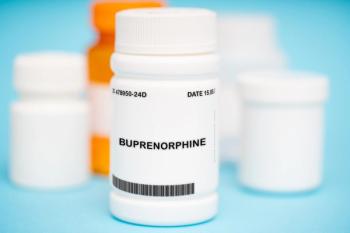
What AWP suit means: Get ready for its demise
When First DataBank agreed to settle a lawsuit last month and pledged to stop publishing AWP (average wholesale price) data in two years, it sent ripples through the pharmacy industry. AWP has long been a key measure for determining pharmacy payments, and there is no easy answer for how to replace it. As John Rector, senior VP and general counsel at the National Community Pharmacists Association, cautioned, "This is the very beginning of what will probably be a very lengthy process."
The case stems from a complaint filed in the U.S. District Court for the District of Massachusetts last year by the Prescription Access Litigation (PAL) Project against First DataBank and McKesson. PAL, a coalition that includes union-backed health plans, alleged that First DataBank and McKesson carried out an illegal scheme to raise the price of prescription drugs by inflating AWP. The lawsuit claimed that beginning in 2002, McKesson and First DataBank began arbitrarily raising the WAC (wholesale acquisition cost)-to-AWP spread to 25% for more than 400 brand-name drugs. According to the complaint, those drugs previously had only a 20% WAC-to-AWP spread.
In a written statement, First DataBank sought to assure the industry: "We will institute these changes in a responsible fashion, in an effort to minimize the effect on our customers and the beneficiaries of reimbursement. However, as a responsible publisher that is dedicated to reporting relevant and reliable drug information, we do not believe that the Blue Book AWP field can be published by us or any other compendia as a sustainable reimbursement benchmark."
Some experts cautioned that lesser-known parts of the settlement may also have a significant impact on the industry. "From our sector's point of view, there are some very problematic aspects of the settlement," said Rector. As part of the settlement, First DataBank will make available all the documents that it has relevant to the AWP issue, which could lead to new litigation. First DataBank is "held harmless and nobody else is. Who knows what data they have?" Rector asked.
Some of that uncertainty will undoubtedly continue. Although First DataBank has agreed to the settlement, the case continues on with McKesson as the sole defendant. In a statement, the company pledged that "the claims against McKesson have no merit, and we will defend ourselves vigorously. McKesson does not set AWP. First DataBank sets AWP.... If First DataBank decided to survey McKesson only, it did so without telling McKesson." Alex Sugerman-Brozan, director of PAL, has pledged to pursue the McKesson litigation aggressively.
The impact of the settlement remains to be seen. As CVS noted in a written statement meant to calm investor concern: "In the event AWPs were suddenly reduced in a material way for particular products, obviously we would renegotiate the discount or dispensing fee. Virtually all of our commercial agreements are 'at-will' agreements, which can be renegotiated freely." The statement does not specify what will replace AWP in the contracts.
Newsletter
Pharmacy practice is always changing. Stay ahead of the curve with the Drug Topics newsletter and get the latest drug information, industry trends, and patient care tips.























